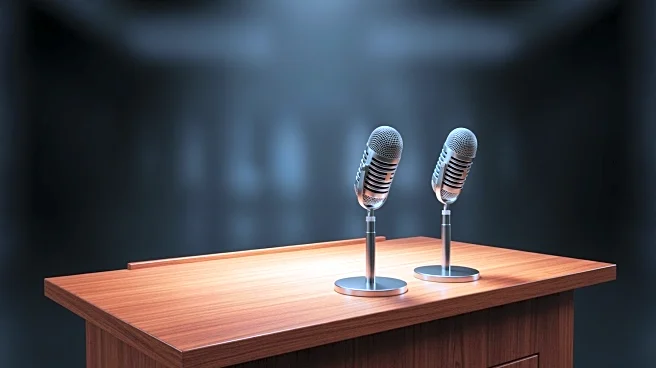What's Happening?
Bill Maher and former Democratic National Committee chair Donna Brazile have publicly criticized Michelle Obama for her recent comments suggesting that America is not ready for a female president. During a book tour event at the Brooklyn Academy of Music,
Obama expressed her belief that the country is not prepared to elect a woman to the presidency, citing the failed bids of Hillary Clinton and Kamala Harris as evidence. Maher, speaking on his show 'Real Time,' challenged Obama's assertion, arguing that the readiness for a female president should not be judged solely on past election outcomes. Brazile also countered Obama's claim, pointing to the significant popular vote counts received by both Clinton and Harris in their respective elections against President Trump. Brazile emphasized that the idea of America not being ready for a female president is unfounded, suggesting that the issue may lie with individual candidates rather than the concept itself.
Why It's Important?
The debate over America's readiness for a female president touches on broader issues of gender equality and representation in politics. Michelle Obama's comments have sparked discussions about societal attitudes towards female leadership and the barriers women face in achieving high political office. The criticism from Maher and Brazile highlights differing perspectives within the political sphere on this issue. If the perception persists that America is not ready for a female president, it could discourage potential female candidates from running, thereby impacting the diversity of future presidential races. Conversely, challenging this notion could encourage more women to pursue leadership roles, potentially leading to greater gender parity in political representation.
What's Next?
The conversation around female leadership in politics is likely to continue, especially as the 2028 presidential election approaches. Michelle Obama's comments may prompt further analysis and discussion among political analysts, commentators, and the public regarding the factors that influence electoral outcomes for female candidates. Political parties may also consider these discussions when strategizing for future elections, potentially focusing on how to better support and promote female candidates. Additionally, the ongoing dialogue may inspire more women to engage in political activism and leadership, challenging existing narratives and advocating for change.
Beyond the Headlines
Michelle Obama's remarks and the subsequent criticism from Maher and Brazile underscore the complex dynamics of gender and politics in the United States. The discourse reveals underlying societal attitudes and biases that may affect women's political ambitions and opportunities. This situation also highlights the importance of examining the role of media and public opinion in shaping perceptions of female candidates. As the conversation evolves, it may lead to a deeper understanding of the cultural and institutional changes needed to support gender equality in political leadership.

















